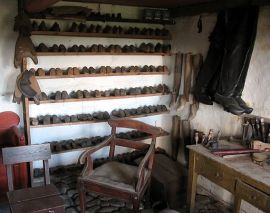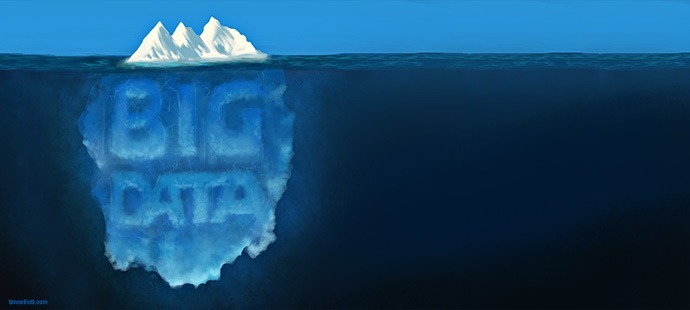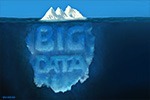
The British government intercepted the emails and phone calls of foreign dignitaries attending the 2009 G20 meetings in London, according to the latest tranche of leaks released by the Guardian.
Among other tactics, the British intelligence agency GCHQ set up fake internet cafes for delegates to use in order to log their keystrokes, broke into their BlackBerries, and kept round-the-clock records of phone calls during the summit. Meanwhile, Americans monitored the phone calls of former Russian president and current prime minister Dmitri Medvedev.
The revelations have already infuriated Russia and Turkey, and they are sure to raise some eyebrows at this week's G8 summit, which is also being hosted by Great Britain.
"At a time when international co-operation depends on mutual trust, respect and transparency, such behaviour by an allied country is unacceptable," a spokesman at the Turkish foreign ministry said.
And yet, spying on your allies has long been a staple of international diplomacy -- dating back to the first embassies established by 16th century Italian city-states, where cryptanalysts would slice open the wax seals of intercepted, coded messages with hot knives before deciphering them.
Before the advent of email, modern spy agencies had to break codes hidden within telegraphs in order to read them. And in at least once case in the early 20th century, the U.S. government used surveillance and codecracking to score a major diplomatic victory against Japan during a major international meeting.

Herbert Yardley was a former railroad telegrapher who later became a government "code clerk." He proved the value of his code-breaking chops throughout World War I, and after the war the State Department officially set up a "Cipher Bureau." (As if that name wasn't nefarious-sounding enough, it was also known as "The Black Chamber.") It was America's first permanent code-cracking agency, and it was the precursor for today's National Security Agency. Yardley became the head, setting up the offices on East 38th Street in New York, across the street from a department store. He and his wife lived on one floor, and the bureau took up the rest of the building.
(Why New York? "Washington is overrun with spies," Yardley said, without any apparent irony.)
At the time, diplomatic messages were written not only in foreign languages, but also with some words substituted with numbers or code words. It was the Cipher Bureau's job to make sense of the code and then translate the entire message.
David Kahn, who has written extensively about Yardley and code-breaking, said it was not unlike solving a puzzle:
"It was about looking at frequencies and guessing at what they were," Kahn said.

The bureau largely concerned itself with cracking messages sent by the Cheka, the Russian secret police, and by various South American governments. But by far the big codebreaking target was Japan.
"Its naval growth menaced American power in the western Pacific. Its commercial expansion threatened American dominance of Far Eastern markets," Kahn wrote in a book about Yardley. Yardley didn't speak Japanese, but he at one point told his boss he would resign within a year if he couldn't crack the Japanese codes.
There were a number of ways to eavesdrop on a telegraph, but Yardley found the easiest. He and his employees would simply go down to the local Western Union office and ask the telegraph operators for copies of the Japanese messages, Kahn said. And like Facebook or Google in today's NSA scandal, the workers found it hard to say "no."
A golden opportunity to spy on the Japanese came in 1921, during a conference that aimed to limit naval capability among the world's powers as a way of curbing the war-ship arms race at the time.
The U.S. wanted Japan to concede to having fewer ships, but Japan wanted slightly more. With Yardley's code-cracking, the U.S. discovered that it was more important to the Japanese to preserve their relationship with the U.S. than to be able to spend more on their navy.
"We pressed hard, and Japan abandoned its position that it wanted to build more," Kahn said. "We won a great victory for not just the U.S., but for the whole world because we built fewer war ships and we had more money to build roads and for other infrastructure."
For their hard work, Yardley and his staff received Christmas bonuses -- an almost unheard of practice in the federal government -- which ranged from $37 to $184, or 2.5 percent of their salaries. He was also awarded the Army's highest noncombat decoration, the Distinguished Service Medal, "for exceptionally meritorious and distinguished services in a position of great responsibility."
Yardley's success was short-lived, though. The Cipher Bureau was shuttered in 1929, shortly after the arrival of Henry Stimson as the new Secretary of State. Apparently, Stimson thought this type of surveillance was unethical, and he issued what is perhaps one of the best foreign policy statements ever:
"Gentlemen do not read each others' mail."
And yet, they continued to. Intercepting private messages picked up within Cipher Bureaus all over the world during World War II, and such spying became a staple of the Cold War, Kahn says. Cryptanalysis became a major strategy employed by almost all the major world powers, including France, Germany, and -- you guessed it -- Great Britain.
That's not to say that what the British and American surveillance teams did during the G20 was right or even fair, just that it's not entirely new.
"During war time, we solved codes once again. We've continued that ever since," Kahn says. "That's what he whole fuss is about at the present."






![[optional image description]](http://cdn.theatlantic.com/static/mt/assets/science/assets_c/2013/06/shutterstock_119788672-thumb-570x416-124596.jpg)








